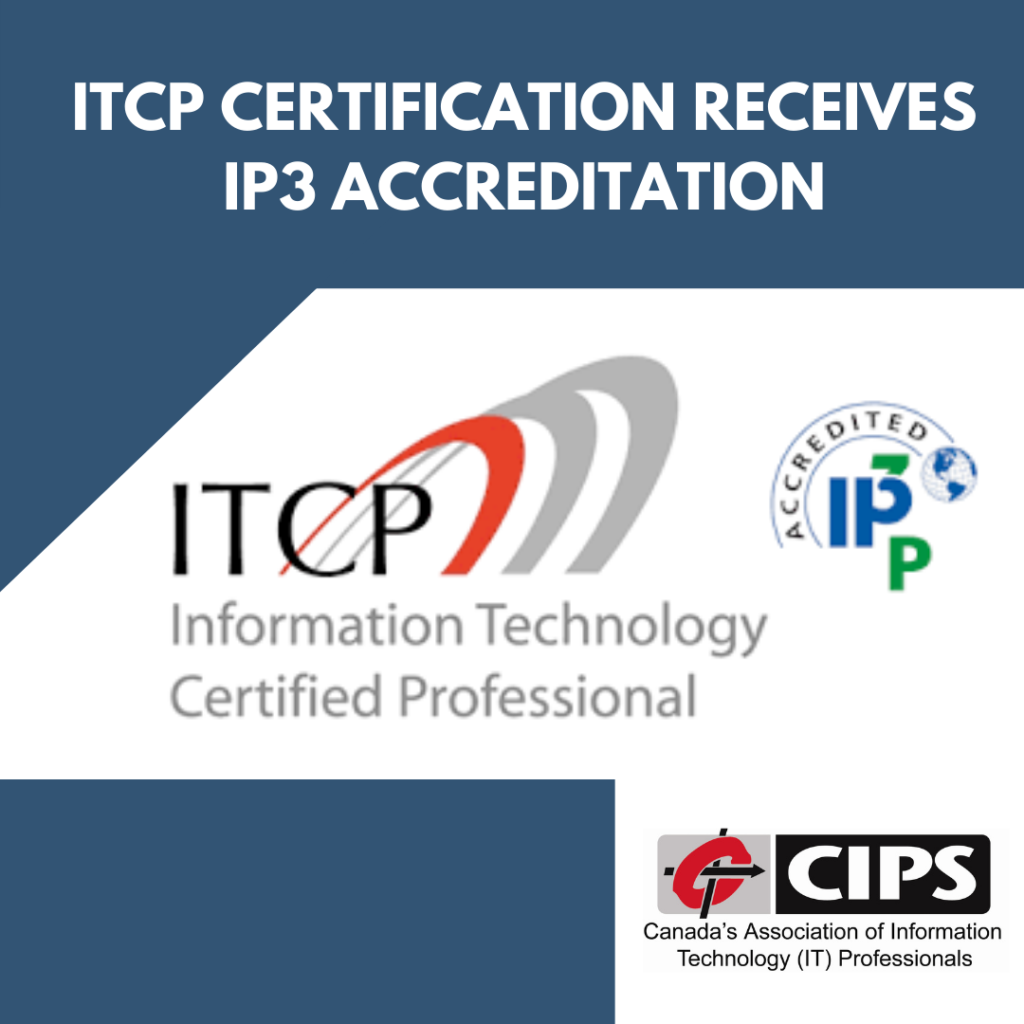CIPS’ ITCP Certification Receives IP3 Accreditation

CIPS’ ITCP Certification received IP3 Accreditation on May 10th 2021, which is valid until April 30th 2026.
The ITCP Certification program was reviewed by the International Federation for Information Processing: International Professional Practice Partnership (IP3), and was examined and accredited as meeting the required IP3 standards.
The ITCP program has been accredited against the “IP3P standard“, which is mapped to SFIA level 5.
CIPS ITCP Certification holders can now list the IP3P standard beside their ITCP Designation and/or list the IP3P Accredited logo below their name in their email signature.
Example:
John Smith, ITCP/IP3P
CIPS will be updating its ITCP “Mutual Recognition” application route to accept Certifications from other IP3 Accredited Associations around the world which have also been IP3P Accredited and aligned to the same SFIA standards.
About the ITCP (Information Technology Certified Professional )
In 2008 CIPS introduced the ITCP designation which is directed specifically to senior IT practitioners and academics who want to demonstrate to their employer, their clients, their students and their partners that in addition to their IT knowledge they understand how to effectively utilize and apply their organizational experience to achieving organizational excellence.
About IP3 (International Professional Practice Partnership):
IFIP IP3, the International Professional Practice Partnership is leading the development of the global ICT profession. Our mission is to establish a global partnership that will strengthen the ICT profession and contribute to the development of strong international economies by creating an infrastructure that will:
- encourage and support the development of both ICT practitioners and employer organizations
- give recognition to those who meet and maintain the required standards for knowledge, experience, competence, and integrity
- define international standards of professionalism in ICT.
About IFIP (International Federation for Information Processing)
- Is the leading multinational, apolitical organization in Information & Communications Technologies and Sciences
- is recognized by United Nations and other world bodies
- has a formal consultative partnership relation with UNESCO
- represents IT Societies from over 38 countries or regions, covering all 5 continents with a total membership of over half a million
- links more than 3500 scientists from Academia and Industry, organized in more than 101 Working Groups reporting to 13 Technical Committees
- sponsors 100 conferences yearly providing unparalleled coverage from theoretical informatics to the relationship between informatics and society including hardware and software technologies, and networked information systems
About SFIA:
SFIA describes skills and competencies required by professionals in roles involved in information and communication technologies, digital transformation and software engineering.

